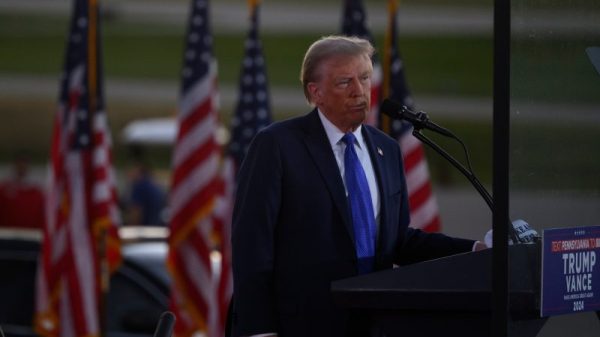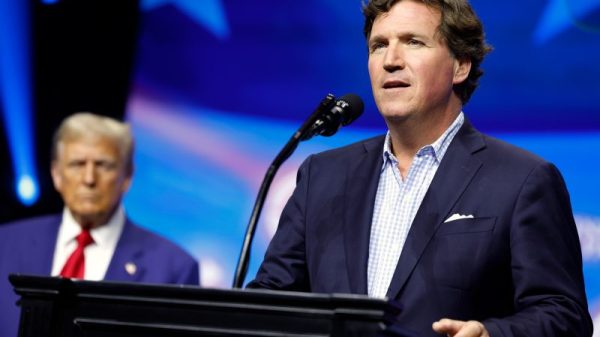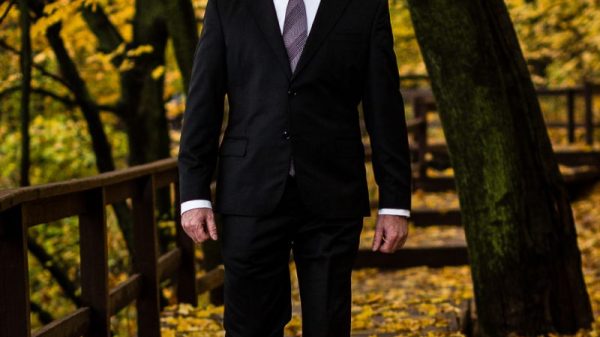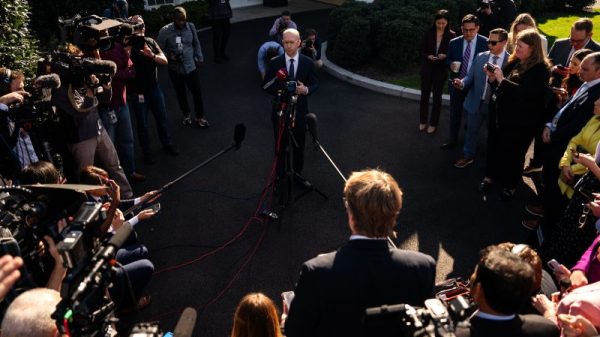Nick Saban thinks college football needs to be fixed and that the federal government should become involved in the fixing. Sen. Tommy Tuberville, R-Ala., shares that belief, and he warns that the sport is “in danger.”
In danger of what, exactly?
Also, how and why should the federal government be involved in fixing college football’s problems, insomuch as they exist?
And, goodness me, why should President Donald Trump insert himself into this situation?
I’ve heard few coherent solutions from Saban or Tuberville. Mostly, I hear complaints from two retired coaches pining for the good ol’ days, when coaches enjoyed omnipotence and ruled like kings, while athletes enjoyed fewer freedoms and less compensation.
Saban and Tuberville got in Trump’s ear last week. The president is considering an executive order that would address payments to college athletes, a person familiar with the matter confirmed to USA TODAY on Friday.
Again, I ask, why should Trump be involved? How would an executive order lawfully and effectively improve college football? Why should the president restrict athlete movement or place regulations on college athletics’ unfettered name, image and likeness marketplace that state legislation and the court system unlocked? How would uncorking a presidential bailout for the NCAA, an unpopular organization, amount to good politics?
Saban and Tuberville want Trump to listen to their college football gripes. The president should ignore them and call on college football’s leaders to fix their own problems.
BEST OF BEST: Our ranking of college football’s top 25 coaches
Donald Trump, tell college football leaders to fix their own problems
Trump campaigned on deregulation and a pledge to whittle down government inefficiencies. He likes to say voters gave him a mandate when they ushered him back into office. Trump was not elected on a mandate to install more federal regulations or clog business opportunities.
Any conservative worth his salt ought to remember Ronald Reagan saying during his presidency that the nine most terrifying words in the English language are: ‘I’m from the government, and I’m here to help.’
With the spirit of Reagan in mind, the 12 most terrifying words to a college athlete probably sound something like: ‘I’m from the federal government, and I’m here to ‘fix’ college sports.’
Legal expert Michael McCann explained Monday on ‘The Paul Finebaum Show’ that any executive order that limits athlete compensation would insert chaos and unleash a new batch of legal challenges, instead of providing stability.
College football doesn’t need Trump to make it great again. It remains great, and whatever its shortcomings, those are for college football’s leaders to address, not the president.
Steve Berman, a lead attorney representing current and former athletes in an ongoing class-action lawsuit against the NCAA and the Power Five conferences, skewered Saban for being “a hypocrite” and “an opponent of NIL from the start.” He encouraged Trump to embrace the free market and not hinder athletes’ deal-making ability.
“The president says he is the greatest business person ever,” Berman said in a statement to USA TODAY. “Why would he do anything to limit the business deals students are negotiating for their NIL?”
Indeed, alternatives to federal legislation or presidential action include allowing the NIL market to regulate itself. Also, the NCAA could pursue collective bargaining with athletes and try to claw back roster control and transfer protections. College sports leaders grow weary of the NIL and transfer markets, while not pursuing collective bargaining, and they lobby for a federal bailout. Why should they get one?
This open market is a win for athletes and their earning opportunities. Salaries for coaches and administrators keep soaring, too. Athletic department revenues swell on the backs of rich media rights deals and new revenue streams like the expanded College Football Playoff and the NCAA loosening restrictions on things like sponsorship logos on football fields.
And former coaches groan.
Nick Saban, Tommy Tuberville pine for days of omnipotence
Saban cannot stand that the athletes he used to coach make millions in an unregulated marketplace while enjoying the freedom to transfer from school to school. Drives him bonkers.
He misses the unchecked power coaches enjoyed before a series of court rulings shattered that structure and unwound NCAA policies that restricted athlete freedoms. Saban retired from coaching in 2024 rather than persist within this NIL landscape, which he grumbles keeps getting worse.
“I mean, where does it end?” Saban said last winter on ESPN, while referencing athletes’ swelling paydays.
I don’t know, Nick, where do defensive coordinator salaries end? Penn State made Jim Knowles the first $3 million coordinator this offseason. That’s $3 million for a coordinator, not a coach.
If college football is indeed in danger, the folks cutting the checks don’t seem to think it demands a course-correct on coaching staff spending.
In 1996, Steve Spurrier became the first college football coach to earn a million-dollar salary. Now, salaries for mediocre coaches top $6 million. Salaries for good coaches exceed $10 million.
Would Saban like politicians to restrict coaches’ earning potential? I think not. As for athletes’ ballooning compensation, let the market regulate those deals, not politicians.
Among Tuberville’s grievances is that athletes have “no loyalty” today, as they transfer in search of their next NIL deal. Let’s consider the source of this complaint.
Tuberville once claimed to be so devoted to coaching Mississippi that they’d have to carry him out of town “in a pine box.” He left two days later, not in a pine box, but on a private jet bound for Auburn. Two-faced Tuberville jilted Mississippi to coach an SEC rival.
Years later, Tuberville left a dinner he was having with Texas Tech recruits and never returned. A day later, those recruits learned Tuberville vamoosed to become Cincinnati’s coach.
This weasel now wants you to believe college football rots while athletes strike NIL deals and transfer freely from school to school. The federal government, Tuberville says, needs to insert itself into the situation and help “level the playing field.”
Tuberville, in an interview with Tuscaloosa radio station 100.9 The Game, called for a government crackdown on the transfer portal and federalizing NIL rules so that they don’t vary from state to state. So much for limited government and states’ rights, huh?
Saban agrees college football suffers from an unlevel playing field, as if this is some sort of new development. He’s called for regulations that create ‘competitive balance.”
“It’s whoever wants to pay the most money, raise the most money, buy the most players is going to have the best opportunity to win,” Saban said in March. “I don’t think that’s the spirit of college athletics.’
Some might call that the spirit of smart business: Assemble the best talent, pay them well and trust that gives you an optimal chance at success and revenue.
News flash to Saban and Tuberville: College football lacked competitive balance long before NIL. This always has been a sport of the haves and the have-nots, a sport influenced by deep-pocketed boosters, rich television contracts and under-the-table paydays for athletes, before state legislation combined with a unanimous Supreme Court ruling unlocked the NIL marketplace in 2021.
Tuberville was an assistant coach at Miami (Fla.) in the 1990s, when the NCAA determined the Hurricanes’ football program engaged in a pay-for-play scandal. Now, pay-for-play is the rule of college football, out of the shadows. This frontier unnerves Tuberville.
Hey, he’s from the government, and he wants to help. Terrifying words, still. Whatever college football’s problems, I wouldn’t trust federal bureaucrats or out-to-pasture coaches to implement smart, fair and effective solutions.
Blake Toppmeyer is the USA TODAY Network’s national college football columnist. Email him at BToppmeyer@gannett.com. Follow him on X @btoppmeyer.




























